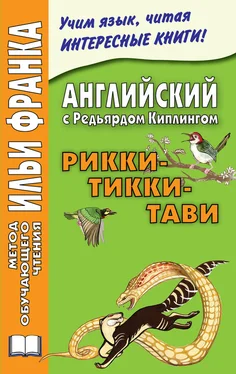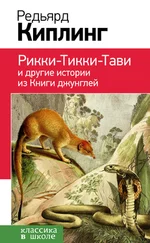
 Kala Nag will obey none but me, so I must go with him into the Keddah, but he is only a fighting elephant, and he does not help to rope them. So I sit at my ease, as befits a mahout, – not a mere hunter, – a mahout, I say, and a man who gets a pension at the end of his service. Is the family of Toomai of the Elephants to be trodden underfoot in the dirt of a Keddah? Bad one! Wicked one! Worthless son! Go and wash Kala Nag and attend to his ears, and see that there are no thorns in his feet. Or else Petersen Sahib will surely catch thee and make thee a wild hunter – a follower of elephant’s foot tracks, a jungle bear. Bah! Shame! Go!”
Kala Nag will obey none but me, so I must go with him into the Keddah, but he is only a fighting elephant, and he does not help to rope them. So I sit at my ease, as befits a mahout, – not a mere hunter, – a mahout, I say, and a man who gets a pension at the end of his service. Is the family of Toomai of the Elephants to be trodden underfoot in the dirt of a Keddah? Bad one! Wicked one! Worthless son! Go and wash Kala Nag and attend to his ears, and see that there are no thorns in his feet. Or else Petersen Sahib will surely catch thee and make thee a wild hunter – a follower of elephant’s foot tracks, a jungle bear. Bah! Shame! Go!”
Little Toomai went off without saying a word(Маленький Тумаи ушел, не сказав ни слова; without – без ) , but he told Kala Nag all his grievances while he was examining his feet(но он рассказал Кала Нагу обо всех своих обидах, пока осматривал его ноги; to examine – рассматривать, осматривать ) . “No matter(не беда; matter – вещество; вопрос, дело; no matter – безразлично, неважно ) ,” said Little Toomai, turning up the fringe of Kala Nag’s huge right ear(загибая край огромного правого уха Кала Нага; to turn up – поднимать вверх, загибать; fringe – бахрома; край ) . “They have said my name to Petersen Sahib(они сказали мое имя Петерсену Сахибу) , and perhaps(и, может быть) – and perhaps(и, может быть) – and perhaps(и, может быть) – who knows(кто знает) ? Hai(хай) ! That is a big thorn that I have pulled out(вот какую большую колючку я вытащил; to pull out – вытаскивать ) !”
The next few days were spent in getting the elephants together(несколько следующих дней были проведены в сборе слонов вместе = в том, что слонов собирали вместе) , in walking the newly caught wild elephants up and down between a couple of tame ones(водя вновь пойманных диких слонов взад и вперед, /поставив каждого из них/ между парой ручных; up and down – вверх и вниз; взад и вперед; туда и сюда ) , to prevent them giving too much trouble on the downward march to the plains(чтобы они не доставляли слишком много хлопот во время спуска в долину; to prevent – предупреждать, предотвращать; march – / воен. / походное движение, марш; передвижение войск ) , and in taking stock of the blankets and ropes and things that had been worn out or lost in the forest(и собирая = готовя запас попон, веревок и всего, что поизносилось или потерялось в лесу; stock – запас, инвентарь; blanket – шерстяное одеяло; попона; to wear – носить; изнашивать / ся / ; to lose – терять ).

 Little Toomai went off without saying a word, but he told Kala Nag all his grievances while he was examining his feet. “No matter,” said Little Toomai, turning up the fringe of Kala Nag’s huge right ear. “They have said my name to Petersen Sahib, and perhaps – and perhaps – and perhaps – who knows? Hai! That is a big thorn that I have pulled out!”
Little Toomai went off without saying a word, but he told Kala Nag all his grievances while he was examining his feet. “No matter,” said Little Toomai, turning up the fringe of Kala Nag’s huge right ear. “They have said my name to Petersen Sahib, and perhaps – and perhaps – and perhaps – who knows? Hai! That is a big thorn that I have pulled out!”
The next few days were spent in getting the elephants together, in walking the newly caught wild elephants up and down between a couple of tame ones to prevent them giving too much trouble on the downward march to the plains, and in taking stock of the blankets and ropes and things that had been worn out or lost in the forest.
Petersen Sahib came in on his clever she-elephant Pudmini(Петерсен Cахиб приехал на своей умной слонихе, Падмини) ; he had been paying off other camps among the hills(он /уже/ распустил другие лагеря в горах; to pay – платить; to pay off – расплачиваться, рассчитываться с кем-либо; распускать / команду /) , for the season was coming to an end(потому что /охотничий/ сезон подходил к концу) , and there was a native clerk sitting at a table under a tree(и теперь за столом, под деревом, был = сидел туземный/местный писарь) , to pay the drivers their wages(чтобы платить = и выдавал жалованье погонщикам) . As each man was paid he went back to his elephant(получив плату, каждый отходил к своему слону) , and joined the line that stood ready to start(и присоединялся к веренице, которая стояла, готовая = готовой пуститься в путь; to start – начинать, браться / за что-либо / ; отправляться, пускаться в путь ) . The catchers, and hunters, and beaters(ловцы, охотники и загонщики; to beat – бить, колотить; beater – тот, кто бьет, взбивает, отбивает; загонщик / охот. /) , the men of the regular Keddah(люди = служившие регулярно при кеддахе; regular – регулярный, систематический ) , who stayed in the jungle year in and year out(которые оставались в джунглях целыми годами; year in and year out – год за годом, из года в год ) , sat on the backs of the elephants that belonged to Petersen Sahib’s permanent force(сидели на спинах слонов, которые принадлежали постоянным войскам Петерсена Сахиба; force – сила; войска ) , or leaned against the trees with their guns across their arms(или /стояли,/ прислонясь к деревьям, с ружьями в руках; to lean – наклонять, нагибать; прислоняться, опираться ) , and made fun of the drivers who were going away(подшучивали над погонщиками, которые уезжали; fun – веселье; шутка; to make fun – подшучивать ) , and laughed when the newly caught elephants broke the line and ran about(и смеялись, когда недавно: «вновь» пойманные слоны нарушали: «ломали» строй и бегали взад и вперед; to run about – суетиться, бегать взад и вперед ).
Читать дальше
Конец ознакомительного отрывка
Купить книгу


 Kala Nag will obey none but me, so I must go with him into the Keddah, but he is only a fighting elephant, and he does not help to rope them. So I sit at my ease, as befits a mahout, – not a mere hunter, – a mahout, I say, and a man who gets a pension at the end of his service. Is the family of Toomai of the Elephants to be trodden underfoot in the dirt of a Keddah? Bad one! Wicked one! Worthless son! Go and wash Kala Nag and attend to his ears, and see that there are no thorns in his feet. Or else Petersen Sahib will surely catch thee and make thee a wild hunter – a follower of elephant’s foot tracks, a jungle bear. Bah! Shame! Go!”
Kala Nag will obey none but me, so I must go with him into the Keddah, but he is only a fighting elephant, and he does not help to rope them. So I sit at my ease, as befits a mahout, – not a mere hunter, – a mahout, I say, and a man who gets a pension at the end of his service. Is the family of Toomai of the Elephants to be trodden underfoot in the dirt of a Keddah? Bad one! Wicked one! Worthless son! Go and wash Kala Nag and attend to his ears, and see that there are no thorns in his feet. Or else Petersen Sahib will surely catch thee and make thee a wild hunter – a follower of elephant’s foot tracks, a jungle bear. Bah! Shame! Go!”










